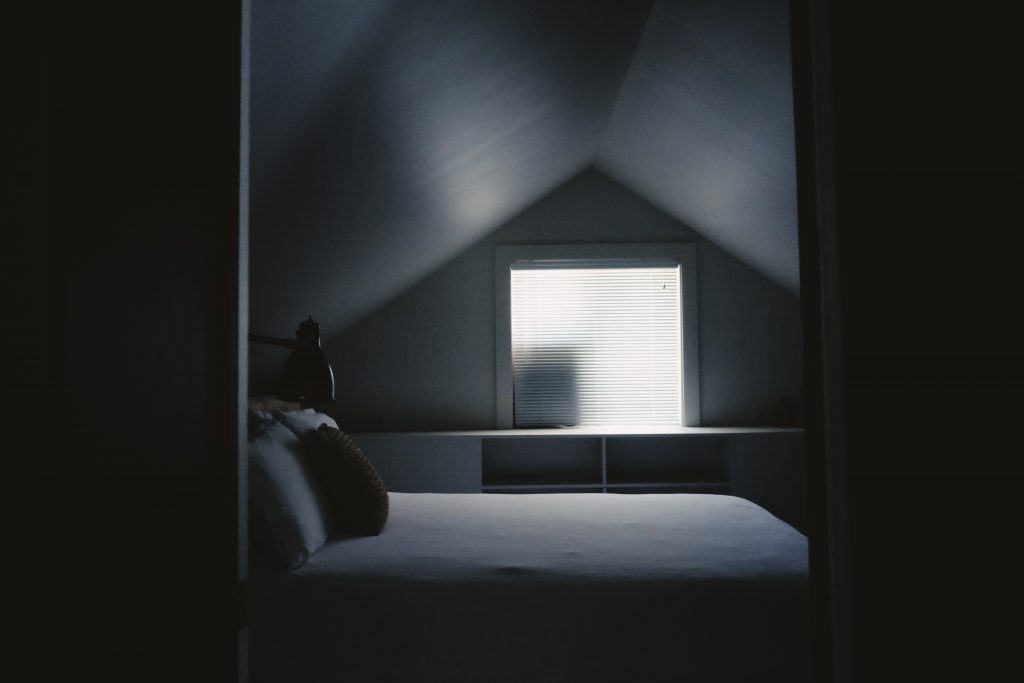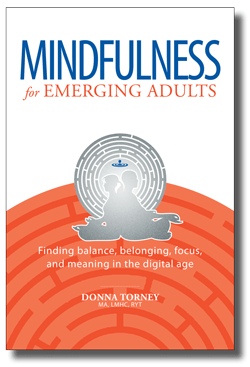Mindfulness Sleep Tips
On the Road to Mindfulness: Finding Balance
The information from the series of articles on Mindfulness focuses on learning to be mindful by, in part, regaining balance as we teach emerging adults stress reduction skills, ground participants in their present surroundings, and help them make the important connection between daily routines and health. It is designed to reset an overwhelmed nervous system so emerging adults and others are then free to focus on finding strong social connections, and meaningful, sustainable work. Emerging adults will have an easier time rediscovering motivation and happiness after anxiety, stress, and low energy are addressed, and routines that foster self-confidence are established.
October’s blog focused on food and exercise issues. This month we are looking at the all-important issue of getting a good night’s sleep.
 An important part of finding balance in our lives is discovering a way to get the sleep we need. Many college students, new mothers and fathers, the elderly, and almost everyone in between seem to be overtired all the time. A few folks will sit in the coffee shop, drink their third double espresso, and brag about how little sleep they need. Surviving on a caffeine buzz and adrenaline from deadlines, they think they are still performing at their optimum level. They are ignoring the fact that all things in the natural world have rhythms and routines. Consider the phases of the moon, the waves of the ocean, the seasons of the year. Humans, too, have rhythms. Unlike the rest of the natural world, we often work against the natural cycle of work and rest by denying our bodies and brains enough sleep every night.
An important part of finding balance in our lives is discovering a way to get the sleep we need. Many college students, new mothers and fathers, the elderly, and almost everyone in between seem to be overtired all the time. A few folks will sit in the coffee shop, drink their third double espresso, and brag about how little sleep they need. Surviving on a caffeine buzz and adrenaline from deadlines, they think they are still performing at their optimum level. They are ignoring the fact that all things in the natural world have rhythms and routines. Consider the phases of the moon, the waves of the ocean, the seasons of the year. Humans, too, have rhythms. Unlike the rest of the natural world, we often work against the natural cycle of work and rest by denying our bodies and brains enough sleep every night.
Sleep Tips and Sleep Facts
Read the sleep facts below and choose a couple of sleep tips to try. Remember, change doesn’t happen over-night – pardon the pun – so don’t expect results the next morning. Practice the new behaviors for a month and you will see a positive change in all aspects of your life.
Sleep fact: Memory consolidation – the ability to learn and record new ideas – is greatly enhanced by a good night’s sleep, as is our ability to be creative. This is the science behind the phrase, let me sleep on it. During sleep, neuronal pruning takes place, helping us shed neuro networks that we no longer use, experience mental clarity, and make better decisions.
Sleep tip: The next time you have a big decision to make, write down a summary of the situation. Place the summary away from your sleep area. Ask sleep to help you with the answer. In the morning notice if you slept better and have more clarity. By following this process, chances are good that you will come up with a creative answer to your problem.
Sleep fact: Ghrelin, the hunger hormone, is released when we are sleep deprived. When we deprive our body of sleep, the nervous system receives a stress signal, making us hungrier.
Sleep tip: Going to bed with a stomach that is too full or too empty may disturb your sleep. An hour before bed, have a small, easy to digest snack, like a small bowl of yogurt, whole-wheat toast, or a glass of warm milk.
Sleep fact: Studies show that one night of poor sleep inhibits the immune system by 25 to 30%. Take note of the connection between your seasonal allergies and colds and your good sleep habits.
Sleep tip: Note in your journal how many hours you slept. At the end of the day enter how your seasonal allergies and/or colds felt. Note the correlation between adequate sleep and how your body reacts to outside stimuli such as pollen.
Sleep fact: Experimenting with your ideal sleep schedule is an essential part of getting quality rest.
Sleep tip: Try to go to sleep and wake up as close as possible to the same time each day. If this seems boring or unsustainable, try adjusting your sleep/wake times to something that works for you.
Sleep fact: Shaking off physical and mental stress at the end of each day will lead to better sleep.
Sleep tip: Practice gentle stretching to release the day’s tension before you get into bed. Take note of one or two accomplishments of your day in your centering journal. Resist the natural tendency of noting what’s left on the to-do list.
Sleep fact: Make your room a sleep sanctuary by limiting activity.
Sleep tip: Keep your room cool, dark, and quiet. If noise and light are a problem, try earplugs and an eye mask. Break the habit of falling asleep in front of a screen. The blue light from electronics sends a signal to the brain to stay awake. Instead, get into bed and take some long, slow breaths with extra-long exhales. Relax all the muscles in your body staring at your feet, think about feeling heavy and relaxed. Welcome sleep!
 The sleep tips and sleep facts material above has been excerpted from Mindfulness for Emerging Adults by Donna Torney.
The sleep tips and sleep facts material above has been excerpted from Mindfulness for Emerging Adults by Donna Torney.
